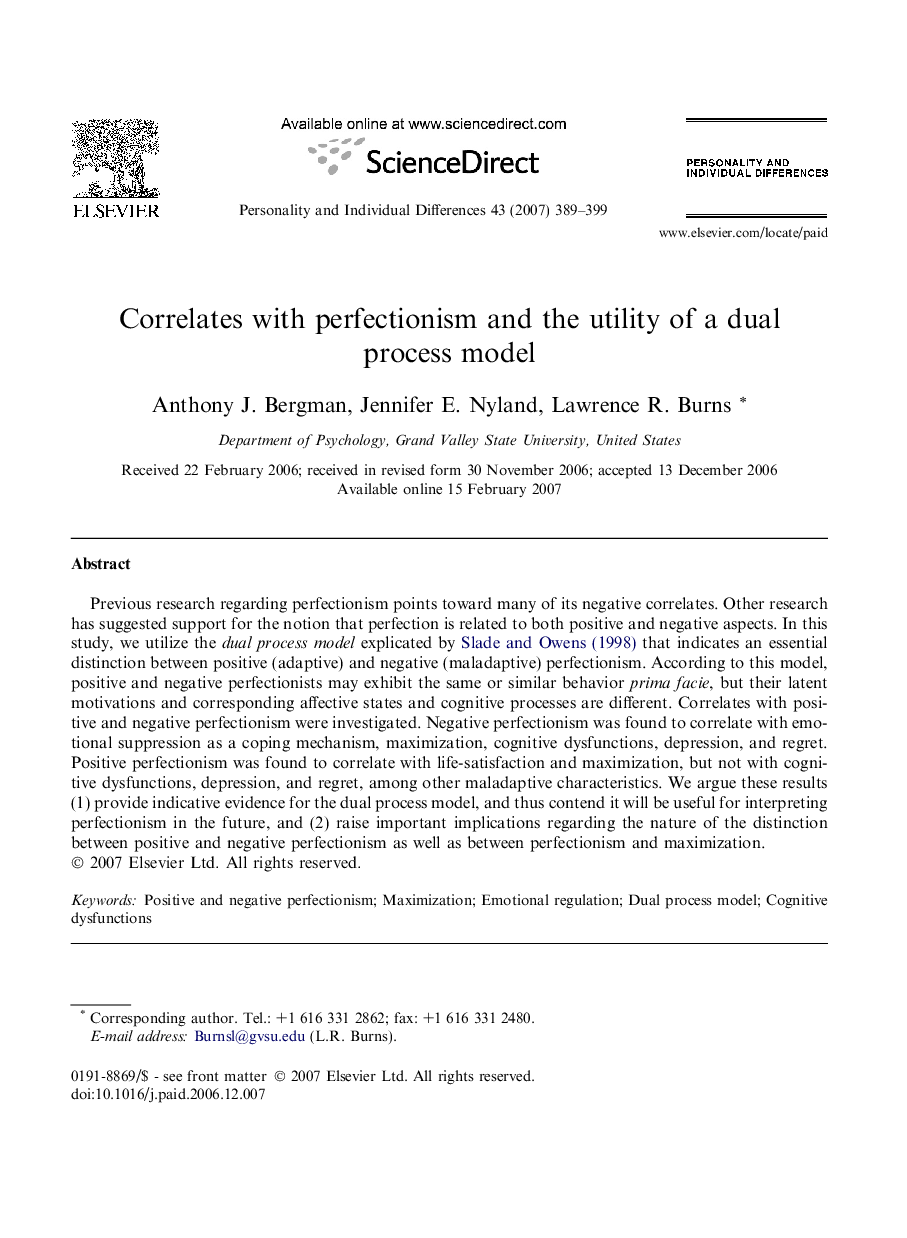| کد مقاله | کد نشریه | سال انتشار | مقاله انگلیسی | نسخه تمام متن |
|---|---|---|---|---|
| 893128 | 914112 | 2007 | 11 صفحه PDF | دانلود رایگان |

Previous research regarding perfectionism points toward many of its negative correlates. Other research has suggested support for the notion that perfection is related to both positive and negative aspects. In this study, we utilize the dual process model explicated by Slade and Owens (1998) that indicates an essential distinction between positive (adaptive) and negative (maladaptive) perfectionism. According to this model, positive and negative perfectionists may exhibit the same or similar behavior prima facie, but their latent motivations and corresponding affective states and cognitive processes are different. Correlates with positive and negative perfectionism were investigated. Negative perfectionism was found to correlate with emotional suppression as a coping mechanism, maximization, cognitive dysfunctions, depression, and regret. Positive perfectionism was found to correlate with life-satisfaction and maximization, but not with cognitive dysfunctions, depression, and regret, among other maladaptive characteristics. We argue these results (1) provide indicative evidence for the dual process model, and thus contend it will be useful for interpreting perfectionism in the future, and (2) raise important implications regarding the nature of the distinction between positive and negative perfectionism as well as between perfectionism and maximization.
Journal: Personality and Individual Differences - Volume 43, Issue 2, July 2007, Pages 389–399